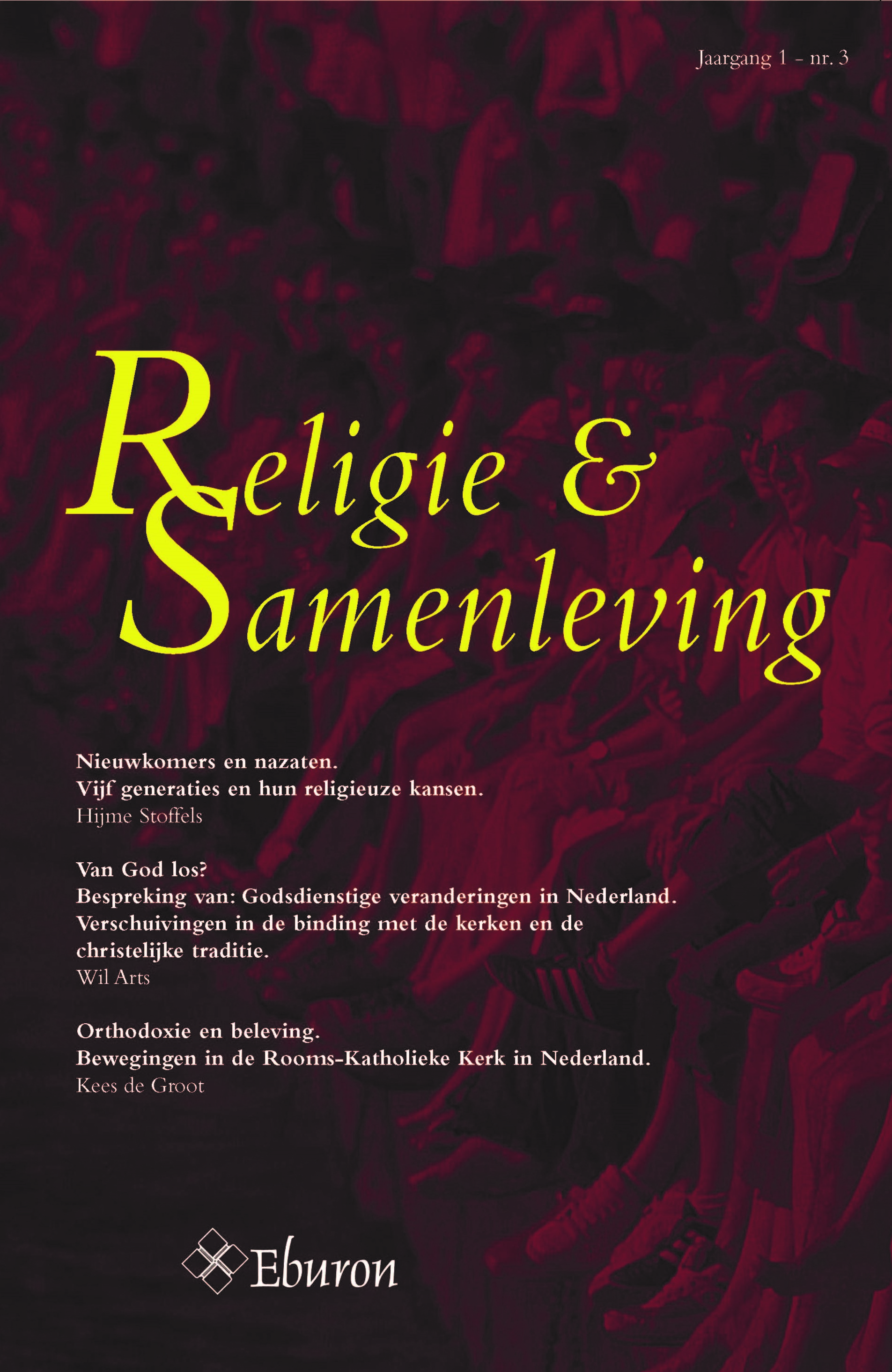Nieuwkomers en nazaten
Vijf generaties en hun religieuze kansen
DOI:
https://doi.org/10.54195/RS.13225Samenvatting
Sociology of religion made its entrée in the Dutch academic world in 1946. Ever since, new young generations have entered the religious market, and ever since, their religious beliefs and preferences have been studied. Following Becker’s typology of five 20thcentury generations in this article, I describe these generations and their religious ‘chances’ by reviewing a selection of empirical studies of youth and religion from the past sixty years. Although a certain amount of religious possibilities has constantly been offered to young people, the successive generations show a strong tendency of decline in church involvement and adherence to Christian beliefs. The youngest generation, however, seems to move away from that development in certain regards. The tone of the empirical studies varies from a deep concern about the ‘low’ moral and religious condition of the young generation in the post-war period to a very critical attitude towards ‘failing’ parents, educators, and churches in the late 1970s and 1980s. At present the tone seems to be more relaxed. The growth of ‘southern’ forms of religion (Islam, Hinduism, imported forms of Christianity) amongst young generations opens up new possibilities of research.




